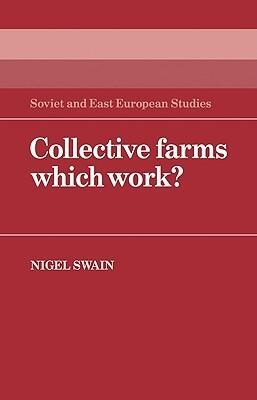
Collective Farms which Work?
还没有评分
格式
平装书
页数
248
语言
英语
已发布
Jan 28, 2008
出版商
Cambridge University Press
ISBN-10
0521057590
ISBN-13
9780521057592
描述
In exploring the phenomenon of collectivization in Hungary, the author delves deep into the social dynamics and frameworks that shaped rural life during this transformative period. By examining how collective farms functioned, he sheds light on the interplay between individual agency and collective expectations.
The narrative offers a nuanced perspective, moving beyond dry statistics and historical accounts, instead revealing the intricate relationships and community structures that emerged in these farming collectives. Through case studies and interviews, the text illustrates the lived experiences of farmers, highlighting both the successes and challenges they faced in adapting to a communal way of life.
Ultimately, the work invites readers to reconsider the broad implications of collectivization, encouraging reflection on how societal organization can influence agricultural practices, local economies, and community bonds. The investigation promises to offer valuable insights into not only Hungary's agricultural past but also the enduring questions of collective versus individual frameworks in economic systems worldwide.
The narrative offers a nuanced perspective, moving beyond dry statistics and historical accounts, instead revealing the intricate relationships and community structures that emerged in these farming collectives. Through case studies and interviews, the text illustrates the lived experiences of farmers, highlighting both the successes and challenges they faced in adapting to a communal way of life.
Ultimately, the work invites readers to reconsider the broad implications of collectivization, encouraging reflection on how societal organization can influence agricultural practices, local economies, and community bonds. The investigation promises to offer valuable insights into not only Hungary's agricultural past but also the enduring questions of collective versus individual frameworks in economic systems worldwide.